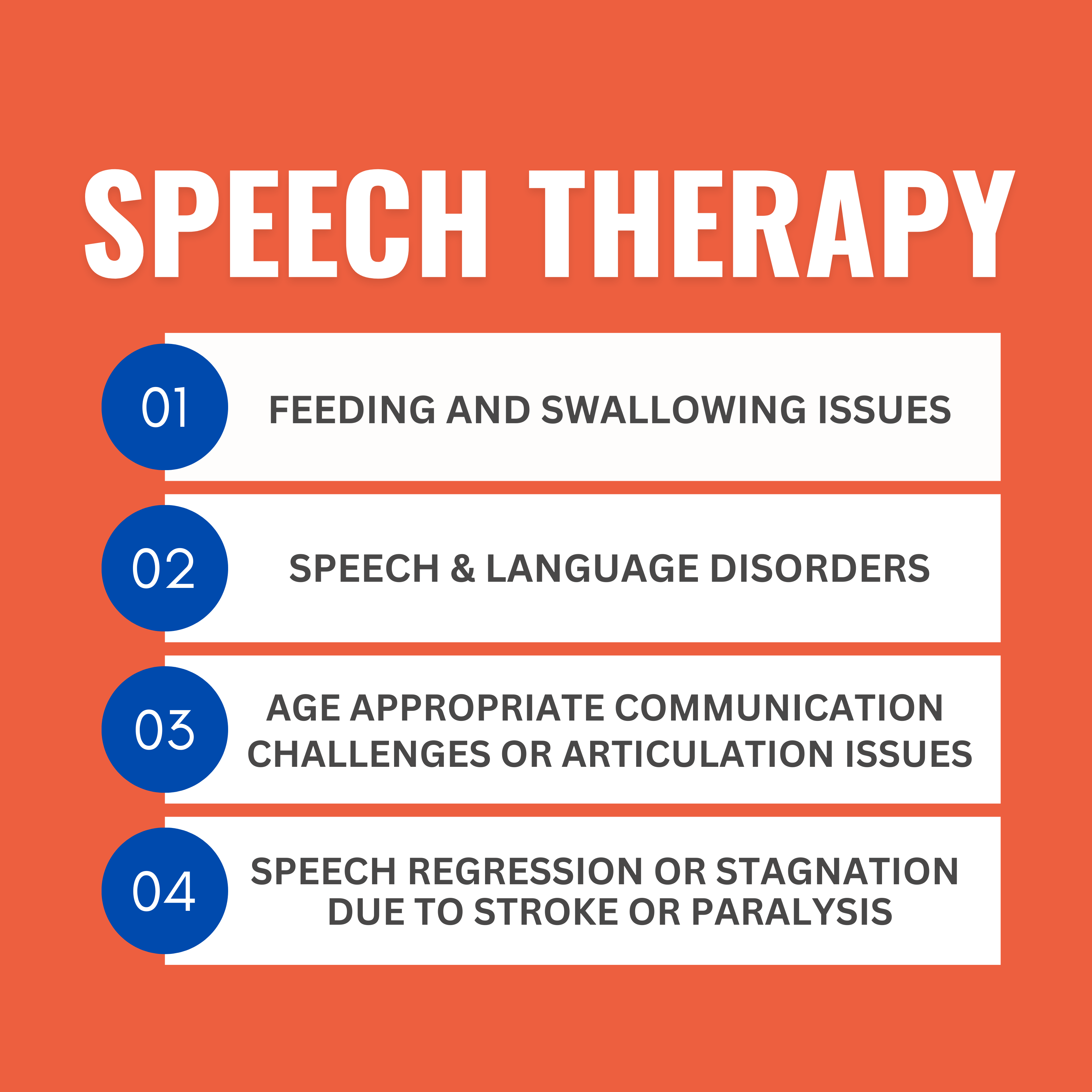Speech is one of the most crucial aspects of human communication. For children, developing speech skills is essential for their social, emotional, and academic growth. However, some children may experience difficulties in Speech and Language development, which can impact various areas of their lives. This is where Speech Therapy plays a vital role. In this guide, we will explore the importance of Speech Therapy for children and how it can positively impact their overall development.
Understanding Speech and Language Development
Speech and language development in children is a complex process that begins at birth and continues to evolve throughout childhood. During this process, children learn to understand and use language to express their thoughts, feelings, and needs. Speech involves the physical act of producing sounds, while language refers to the broader system of communication that includes vocabulary, grammar, and syntax.
Common Speech and Language Disorders
While many children develop speech and language skills without any issues, some may experience delays or disorders that affect their ability to communicate effectively. Some common speech and language disorders in children include:
- Articulation Disorders: Articulation disorders involve difficulty producing sounds or pronouncing words correctly. Children with articulation disorders may substitute one sound for another, distort sounds, or omit sounds altogether. For example, a child might say “wabbit” instead of “rabbit” or “Thun” instead of “sun.”
- Phonological Disorders: Phonological disorders occur when a child has difficulty organizing and using speech sounds within the rules of their language. Unlike articulation disorders, which impact individual sounds, phonological disorders impact entire groups of sounds. Children with phonological disorders may exhibit patterns of sound errors, such as substituting all sounds produced in the back of the mouth with sounds produced in the front.
- Language Disorders: Language disorders involve difficulties with understanding or using language. These disorders can impact both receptive language (understanding spoken or written language) and expressive language (using language to communicate). Children with language disorders may have trouble understanding complex sentences, following directions, or using appropriate grammar and vocabulary when speaking.
- Stuttering (Fluency Disorder): Stuttering is a fluency disorder characterized by disruptions in the flow of speech, such as repetitions of sounds, syllables, or words; prolongations of sounds; or blocks in which the child is unable to produce any sound. Stuttering can vary in severity and may be accompanied by physical tension or struggle behaviours.
- Voice Disorders: Voice disorders involve problems with the pitch, volume, or quality of the voice. Children with voice disorders may have a hoarse or raspy voice, speak too loudly or softly, or experience vocal fatigue or discomfort when speaking for extended periods. Voice disorders can result from various causes, such as vocal nodules, vocal cord paralysis, or misuse of the voice.
- Pragmatic Language Disorders: Pragmatic language disorders, also known as social communication disorders, affect a child’s ability to use language effectively in social situations. Children with pragmatic language disorders may have difficulty following conversational rules, taking turns during conversations, understanding nonverbal cues (such as facial expressions and body language), or adjusting their language based on the needs of the listener.
- Auditory Processing Disorders (APD): Auditory processing disorders involve difficulties with processing and interpreting auditory information. While not exclusively a speech disorder, APD can impact a child’s ability to understand and follow spoken instructions, discriminate between similar sounds, or filter out background noise in noisy environments.
Understanding these common speech and language disorders can help parents, educators, and healthcare professionals recognize the signs and seek appropriate support and intervention for children who may be experiencing difficulties with speech and language development. Early identification and intervention are crucial for addressing these disorders and promoting children’s communication skills and overall development.
Importance of Early Intervention
Early intervention is crucial when it comes to addressing speech and language disorders in children. Research has shown that children who receive early intervention services, such as speech therapy, are more likely to make significant improvements in their communication skills. By identifying and addressing speech and language issues early on, children can develop the necessary skills to succeed academically and socially.
Benefits of Speech Therapy
Speech therapy offers a wide range of benefits for children with speech and language disorders. Some key benefits include:
- Improved Communication Skills: Speech therapy helps children develop clearer speech and language skills, allowing them to communicate more effectively with others.
- Enhanced Academic Performance: Improved communication skills can lead to better academic performance, as children are better able to understand and express themselves in the classroom.
- Increased Self-Confidence: As children make progress in Speech therapy; their confidence in their ability to communicate often grows, leading to improved self-esteem and social skills.
- Better Social Relationships: Clearer communication skills enable children to form stronger relationships with peers and adults, leading to more positive social interactions.
- Support for Overall Development: Speech therapy not only focuses on improving communication skills but also addresses other areas of development, such as cognitive and social-emotional skills.
The Role of Speech Therapists
Speech Therapists, also known as Speech-Language pathologists (SLPs), play a crucial role in helping children overcome speech and language disorders. These highly trained professionals assess each child’s individual needs and develop personalized treatment plans to target specific areas of difficulty. Speech therapists use a variety of techniques and activities to help children improve their communication skills, such as:
- Articulation exercises to improve speech clarity.
- Language games and activities to build vocabulary and grammar skills.
- Fluency techniques to help children speak more smoothly.
- Voice therapy to address voice disorders.
- Social skills training to improve communication in social settings.
At Belief Shaping Therapies, we take pride in being a trusted speech therapy centre in Dubai, catering to areas such as Al Hamriya, Umm Hurair, Burjuman, and Al Karama. Our experienced team of speech therapists in Dubai specializes in identifying and addressing speech and language challenges with customized care. We offer specialized services to support children with various speech and language disorders, understanding the unique needs of each child and providing personalized treatment plans to help them improve their communication skills. Through fun and engaging activities, we work closely with children and their families to achieve meaningful progress in speech clarity, language development, fluency, and social communication. Trust Belief Shaping Therapies to be your partner in helping your child communicate with confidence and clarity.
Why Choose Belief Shaping Therapies?
At Belief Shaping Therapies, we provide comprehensive support to children facing speech and language development issues. Our services include:
- Assessments to identify specific challenges.
- Individualized treatment plans tailored to your child’s needs.
- Interactive therapy sessions using innovative techniques to improve speech clarity and language skills.
- Focused therapy to address challenges such as stuttering, articulation, and social communication.
We are recognized as one of the best speech therapy centres in Al Hamriya, Umm Hurair, and other regions of Dubai, UAE. Whether you are searching for the best speech therapist in Al Hamriya or a trusted speech therapy centre in Burjuman, we are here to help.
Our dedication to early intervention and effective therapy ensures that your child receives the highest standard of care. At Belief Shaping Therapies, we work closely with families to achieve lasting results, fostering growth, confidence, and improved communication.
Contact Us
At Belief Shaping Therapies, we are committed to supporting your child’s communication journey with the utmost care and expertise. If you’re looking for the best speech therapy centre in Dubai, including areas like Al Hamriya, Umm Hurair, Burjuman, and Al Karama, our dedicated team is here to help.
Let us help your child build confidence and clarity in communication. Reach out today to schedule a consultation!


